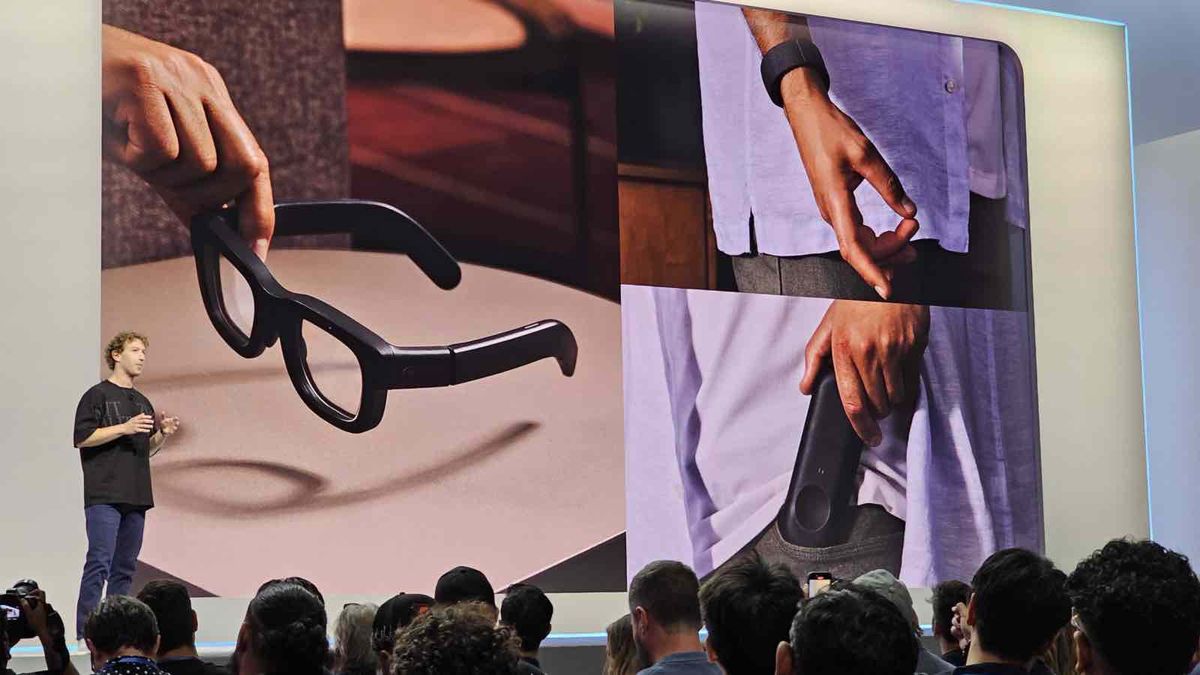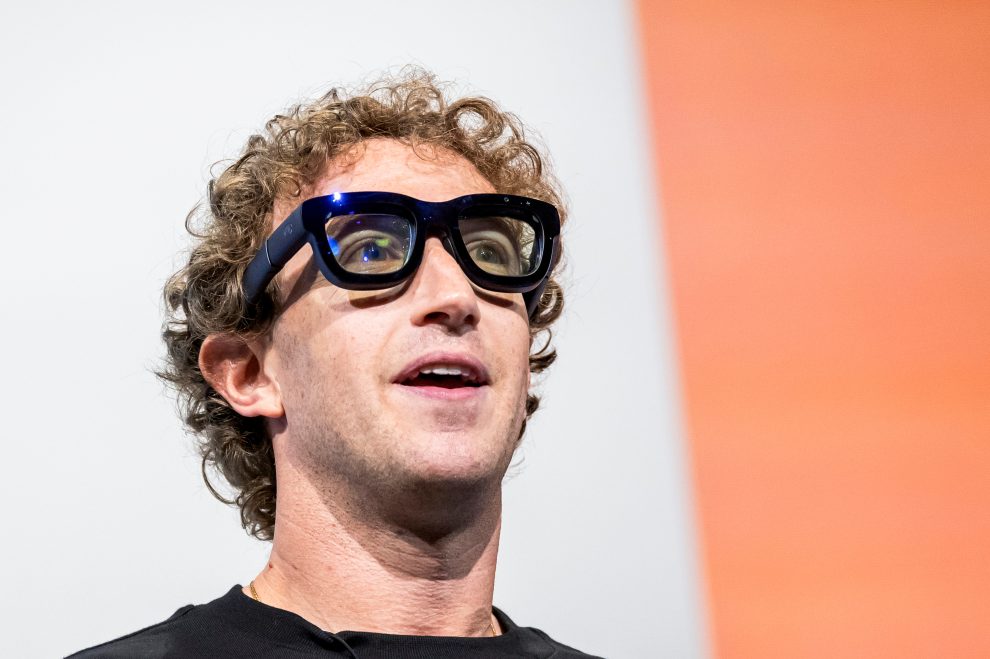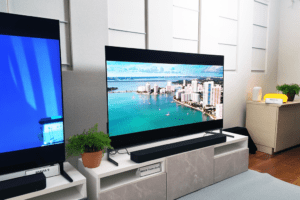Meta CEO Mark Zuckerberg took center stage at the company’s annual Connect conference to unveil a suite of innovative products aimed at revolutionizing how we interact with the digital world. The star of the show? The highly anticipated Orion augmented reality (AR) glasses, a device that promises to blur the lines between the physical and digital realms.
As I stood among the crowd of tech enthusiasts and industry insiders at Meta’s sprawling campus in Menlo Park, California, the excitement was palpable. Zuckerberg, dressed in his signature gray t-shirt and jeans, strode onto the stage with a confidence that suggested he was about to change the game.
“Orion are the most advanced glasses the world has ever seen,” Zuckerberg declared, his voice echoing through the auditorium. The audience leaned forward, eager to catch a glimpse of the device that had been shrouded in secrecy for years.

The Orion prototype, as Zuckerberg explained, is the culmination of a decade-long project aimed at creating truly wearable AR technology. Unlike the bulky headsets of the past, these glasses weigh in at under 100 grams and resemble regular eyewear, making them practical for everyday use.
As Zuckerberg delved into the technical specifications, it became clear that Orion is no ordinary pair of smart glasses. The device boasts:
– Bright, wide field-of-view displays for multitasking and entertainment
– Advanced voice controls for hands-free operation
– Hand and eye tracking for intuitive navigation
– A discreet interface for user interaction
– Ten custom silicon chips for powerful processing
– A novel display architecture that overlays digital content onto the real world
– An EMG wristband for seamless input
“This isn’t just about seeing digital content,” explained Dr. Sarah Chen, Meta’s head of AR research, whom I caught up with after the keynote. It’s about seamlessly integrating the digital and physical worlds in a way that enhances our daily lives and social interactions.”
While Orion stole the spotlight, Zuckerberg also unveiled the Meta Quest 3S, a more affordable version of the company’s popular VR headset. Set to launch on October 15th with a price tag of $299, the Quest 3S aims to bring high-quality mixed reality experiences to a broader audience.
We believe that VR and AR have the power to transform how we work, play, and connect,” Zuckerberg stated. “With the Quest 3S, we’re making that vision more accessible than ever.”
The Quest 3S specs:
– 4.5 times the resolution of its predecessor, the Quest 2
– Improved graphics for more immersive experiences
– Enhanced comfort for extended use
– Available in 128GB, 256GB, and 512GB models
To sweeten the deal, Meta is bundling the game “Batman: Arkham Shadow” with all Quest 3S purchases, along with access to streaming services and fitness apps.

As Meta pushes the boundaries of AR technology, they’re not alone in the quest for more compact and practical wearables. Earlier this month at the China International Optoelectronic Exposition (CIOE), Singapore-based Gyges Labs unveiled DigiWindow, touted as the world’s smallest near-eye display.
Measuring less than 0.1 cc, DigiWindow represents a significant leap forward in miniaturization. Our aim is to make AI glasses as common as smartphones, moving beyond niche tech enthusiasts and into everyday life,” said Jia Jieyang, founder of Gyges Labs, in a statement that underscores the growing competition in the AR space.
As the first day of Meta Connect 2024 drew to a close, the implications of these announcements began to sink in. Meta’s vision for the future of wearable technology is not just about gadgets and specs; it’s about fundamentally changing how we interact with the world and each other.
What we’re seeing here is the beginning of a new era in computing,” said tech analyst Maria Gonzalez, as we discussed the day’s events over coffee. “These devices have the potential to redefine our relationship with technology, making it more intuitive, more personal, and more integrated into our daily lives.”
While the Orion glasses are still in the prototype stage, with no immediate release date announced, their unveiling offers a tantalizing glimpse into Meta’s long-term vision. As for the Quest 3S, its imminent release suggests that Meta is committed to making immersive technology accessible to a wider audience in the near term.
As the sun set over Silicon Valley, casting a golden glow on Meta’s campus, one thing was clear: the future of wearable technology is here, and it’s more exciting and more human-centric than ever before. Whether Meta’s vision will fully materialize remains to be seen, but there’s no doubt that the company is pushing the boundaries of what’s possible in the realm of augmented and virtual reality.
















Add Comment